Ready, Aim, Backfire
There's a silver lining in the Supreme Court's recent ruling on the Second Amendment: Even Antonin Scalia recognizes that gun control is not the same thing as gun confiscation.The gun lobby at last holds its Holy Grail: a ruling from the U.S. Supreme Court that the oddly worded Second Amendment, which speaks of a “well regulated militia” in the same sentence as “the right of the people to keep and bear arms,” does, in fact, bestow upon individuals a constitutional right to own weapons.
Yet it seems that the most extreme crusaders of the right were not sufficiently careful in what they wished for. Even the five conservative justices who took their side and overturned decades of precedent to discover this “right” to private gun ownership believe that Congress and, apparently, states and cities have a perfect right — if not an obligation — to impose a host of restrictions on who can own a gun and where a firearm may be carried.
In other words, gun control is not the same as gun confiscation.
Most of the public has believed in this common sense for quite a long time. Yet polls that show strong support for gun control hasn’t stopped the gun lobby from arguing, even after the bloodiest and most emotionally shocking rampages, such as those at Columbine High School and Virginia Tech, that sensible restrictions aimed at controlling who owns a gun and where it can be carried amount to an illegal intrusion upon its rights. After the Virginia Tech slayings, for example, several gun-rights groups argued that the answer was to lift a broad prohibition against carrying guns on college campuses.
The Supreme Court ruling struck down the District of Columbia law that effectively banned the ownership of handguns, the strictest gun-control law in the nation and one the gun lobby therefore had targeted for obliteration. But the high court simultaneously eviscerated a dogma that the high priests of the gun-rights lobby have long promoted: The justices — even Scalia, who wrote the majority opinion — effectively eliminated the argument that regulating guns is somehow equivalent to seizing them. And Scalia endorsed, with some specificity, a host of gun regulations that embrace pretty much every approach that various states and cities have been putting into place since the late 1960s. These are, it must be noted, the very sorts of laws the gun lobby has doggedly and noisily protested.
“Nothing in our opinion should be taken to cast doubt on longstanding prohibitions on the possession of firearms by felons and the mentally ill, or laws forbidding the carrying of firearms in sensitive places such as schools and government buildings, or laws imposing conditions and qualifications on the commercial sale of arms,” Scalia wrote.
We do not know, in specific terms, just how the avalanche of lawsuits the gun lobby now intends to bring against federal and state gun regulations will turn out. That’s another ironic outcome of the conservatives’ great triumph: A movement that loudly protests the litigation explosion now promises coast-to-coast courtroom pyrotechnics over laws that have been in force for years. Ironically, one of the gun lobby’s recent endeavors has been a campaign to block big-city mayors and gun-violence victims from suing gun manufacturers and unscrupulous dealers.
But one man’s frivolous lawsuit is now, apparently, fundamental to another’s pursuit of freedom.
The gun lobby already has filed suit against municipalities that have laws similar to the one struck down in the District of Columbia. Wayne LaPierre, the National Rifle Association’s executive vice president, told me that licensing and permitting systems, such as the one long in place in New York City, also could be targeted. “We don’t like the licensing of freedom,” he says. “We consider that the same as licensing someone to go to church or to speak.”
So the lid of the Pandora’s box of new gun litigation has sprung wide open. Courts around the country will be asked to decide on public safety strategies that traditionally have been determined by legislatures and city councils. “All of these issues are going to have to be litigated in the courts,” says Kristen Rand, legislative director of the Violence Policy Center in Washington. “This is exactly the opposite of what conservatives say they want the courts to do.”
But consistency never seems to do when political expediency requires another course. That is a hobgoblin the high court ignored when it reversed the historical interpretation to discover an individual right to bear arms. Now, then, for the definition of what responsibilities go along with this new right.
Marie Cocco’s e-mail address is mariecocco(at)washpost.com.
© 2008, Washington Post Writers Group
Your support matters…Independent journalism is under threat and overshadowed by heavily funded mainstream media.
You can help level the playing field. Become a member.
Your tax-deductible contribution keeps us digging beneath the headlines to give you thought-provoking, investigative reporting and analysis that unearths what's really happening- without compromise.
Give today to support our courageous, independent journalists.
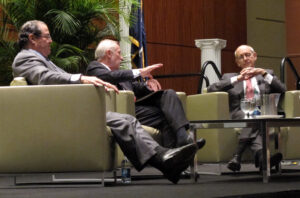
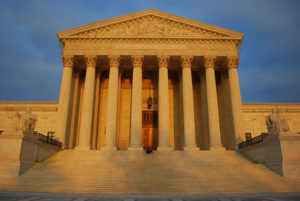
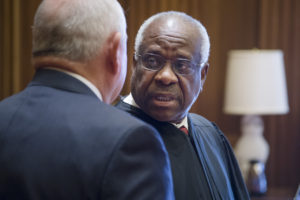
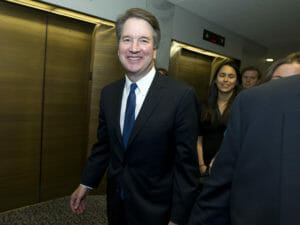
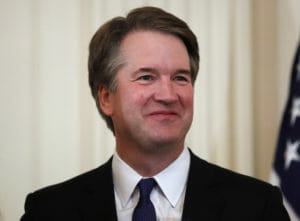
You need to be a supporter to comment.
There are currently no responses to this article.
Be the first to respond.